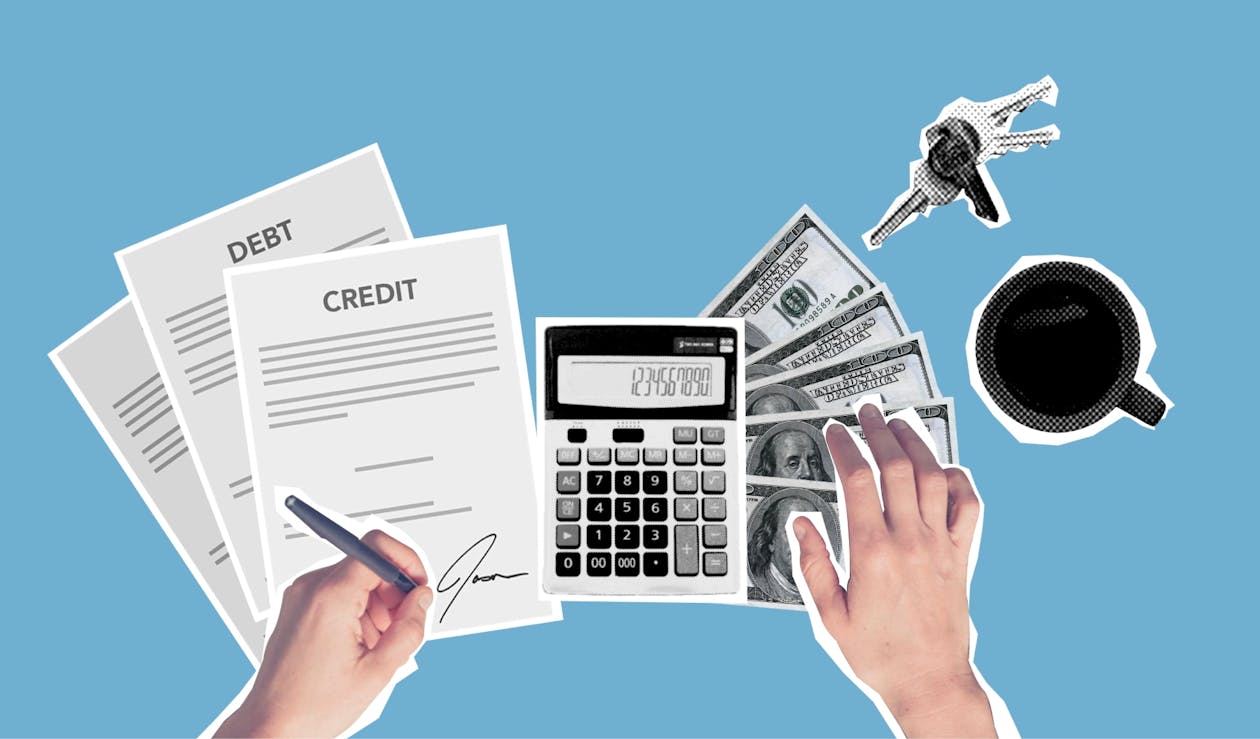Teaching your children about money management is one of the most important things you can do for them. Have you taught your teen money management yet? If not, it’s time to start while they are still at home with you. Learning money management early could protect them from a lot of trouble and heartache. It’s well known that money is overall one of our largest sources of stress. Financial problems are one of the leading causes of divorce in the USA. Many young people are saddled with enormous debt. Yet, when money is managed well, we can find peace of mind in finances. Maybe you aren’t sure where to start, you’re worried you don’t know enough, or maybe you’ve made money mistakes? I was fortunate enough to have parents who were pretty good at this kind of thing. While as a teen, I probably rolled my eyes, I’ve seen the benefits gained from their instruction more and more each year. I’ll share with you the ways they taught me, and a few other tips I’ve picked up along the way.
This post may contain affiliate links, which means I’ll receive a commission if you purchase through my links, at no extra cost to you. Please read full disclosure for more information.
7 Important Money Concepts to Teach Your Teen
Budgeting
Learning to budget is the foundation for good money management and success with all the other concepts below. If you are not already budgeting for yourself, check out my article on budgeting to learn how to start.
Your teen will likely not have a large number of expenses, and they will also not likely have much income. But they can still create a budget for themselves! First, have your teen identify any regular expenses that they have. Help your teen get started with tracking their spending. This could include car maintenance or gas, or even outings with friends. Your teen probably won’t want to track expenses with pen and paper, so have them use an Excel spreadsheet, Google Sheets, or a budgeting app. You can find my free digital budget spreadsheet below:
There are budget apps geared towards children and teenagers, such as BusyKid. For an older teen, the budget app that I like is the FaithFi app. With the FaithFi app, you can choose the type of budgeting that you prefer. Options on the FaithFi app are the Envelope system, monthly budget, or expense tracking only.
Second, make sure your teen understands that their expenses CANNOT exceed their income. This could mean delaying purchases, setting savings goals before making a purchase, and prioritizing needs over wants. This is an important skill that will keep them out of financial trouble in the future.
Giving
I believe that giving is very important. As a Christian, I believe giving is something that we are called to do. To me, the importance of giving is that it breaks the power money can hold over us. We’ve all seen people who have wealth and yet are always chasing more. Greed and entitlement is an easy trap to fall into in today’s materialistic world. Giving can help us connect with others and to be more grateful for the things that we have.
Teach your teenager that a portion of their income should be set aside for giving. You can discuss with your teen how much should be set aside, and let them decide to whom they should give.
Saving
Teens should start saving right away. Talk with your teen and help them to determine the right percentage of income that should be set aside for saving. Perhaps, first, your teen should set a few savings goals that can help guide how much they need to save each month. For example, if you teenager wants to buy a car in 3 years, you could look at car prices together. Then, determine how much they need to save each month by dividing the price of the car by 36 months. Other ideas of savings goals could be for a phone, game or toy, education, school trips, going out, or special clothing. For an older teen, they may even want to begin to save for a future house.
While your teen won’t need an emergency fund while they are under your roof, now would also be a good time to start the conversation. Explain what an emergency fund is for: an emergency funds can pay for unexpected but necessary expenses, like medical bills, or home or car repairs. Emergency funds also protect your from taking on debt to meet the unexpected expense. If you need a hand in explaining it, check out my article on why emergency funds are important and how to set one up.
How Interest Works
Once your teen knows how interest works, then they will understand the power of saving early. Also, they will understand the danger of making only minimum payments on loans. Most loans and savings accounts use compound interest. Compound interest is sometimes called “interest on interest” because interest is calculated on the total of the principal and past interest.
Interest on Savings
Compound interest is good when you are saving, because it will cause your money to grow faster. The earlier you save, the better, because that “interest on interest” will add up. If you save $1000 in a high-yield savings account with an Annual Percentage Yield (APY) interest rate of 4.3%, the first year you will have $43 interest for a total of $1043. The next year, 4.3% of $1043 will give you $45 of interest for a total of $1088. Sure, that may not seem like a lot, but in 9 years you will have $1500. In 16 years you will have $2045; that’s double your money without making any further deposits.
Interest on Debt
Unfortunately, “interest on interest” is expensive when you have compound interest on loans. For example, my last credit card bill was $260.18 with an Annual Percentage Rate (APR) of 19%. I always pay my credit card bills in full, but my minimum payment was only $35. If I were only to pay the minimum payment, it would take me 8 months to pay off and I would spend $19 on interest.
$19 interest doesn’t sound too bad, but what if it were a larger bill, like my bill from September which was $2,607 with a minimum payment of $52.15. This bill would take me over 6 years to pay off, if I only pay the minimum payment. Over this longer time period, the power of compounding interest is more evident. I would pay $1,798 in interest, for a total of $4,405. Let your teen play around with a credit card minimum payment calculator online, so they can see for themselves.

Avoid Debt
Types of debt could include credit card debt, auto loans, personal loans, student loans and mortgages. Some debts are worse than others. I encourage everyone to avoid all credit card debt, auto loans, and personal loans. As we just saw, the interest can add up fast leaving you with years of debt and paying tons in interest.
Upside Down
With car loans, credit card debt, or personal loans, it can be hard to pay off quickly if needed. You cannot sell an asset to cover the full debt. When you buy a car, the car loses value as soon as you drive it off the lot. In this case, you will owe more on the car than it is worth. This is called being “upside down” on a loan. If you had a emergency and couldn’t make your payments, selling the car would not be enough to get you out of debt. You would only be able to pay off part of the loan from the proceeds, and would still need to continue to make payments.
Mortgages
Mortgages are a better kind of debt, because you are purchasing an asset that keeps its value. With a mortgage, if you had an emergency and couldn’t afford the payment, you could sell the home. As real estate keeps it’s value, when you sell the home you could pay off the mortgage in full.
Student Debt
While ideally it would be best to avoid all debt, college debt may be unavoidable. If your teen will need to acquire student loans, then teach them to consider carefully the amount of debt they are willing to take on. Use a student loan calculator for your teen to explore how long it would take to pay off different amounts of student debt. Discuss ways in which money could be saved to reduce debt, such as going to a community college or choosing a local school and living at home to reduce housing costs.
Investing
While it may be several years before your teen is ready to invest, now is the time to teach them about safe investing. They will already have heard about crypto online or from their friends, so it’s important that you make sure they have a full understanding. Perhaps they’ve heard that they can get rich quick with crypto, but they don’t realize the risk involved. Cryptocurrencies are very volatile, and you shouldn’t invest money in cryptocurrency unless you can afford to lose it.
Conversely, the stock market has ups and downs but has been proven as an investment. Over the life of the stock market, the average return is 10% even including the Great Depression and recessions. If you will keep your money invested in the stock market at least 10 years, you can plan on a 6% return on your investment.
Also talk with your teens about the importance of starting to invest early for retirement. Even if they are only able to save a small amount when they are starting out, compounding gains will cause that to add up over time.
How to Build a Good Credit Score
If your teen is 18 years or older, and is responsible with finances, consider encouraging them to apply for a credit card. As length of credit history impacts your credit score, it can be beneficial to open a credit account early. If your teen pays off their balance on time and pays in full, then they will establish a good credit score. When they are ready to apply for a mortgage or an apartment, they will have sufficient length of credit history to have a good credit score.
Build Credit as an Authorized User
Your teen may have to wait until they are 21 years old to apply for a credit card in their own name, if they do not have an independent income or a co-signer. I would recommend that you are very cautious in choosing to co-sign for anyone, even your child.
You can add your teenager as an authorized user on your credit cards, but this can affect your credit score. Before taking this step, be sure that your teen is ready. Also be sure that you and your credit score will be able to weather the storm, and that you are ready to foot the bill should your teen overspend.
Build Credit with a Secured Credit Card
A lower-risk method for building credit may be through a secured credit card. With a secured credit card, you and your teen would put a cash deposit in an account as collateral. The credit limit for the card would be the same amount as the cash deposit. When your teen spends with the credit card, they will get a bill and pay just as with any other card. If one day, the account is closed or transitioned to an unsecured credit card, the deposit is returned in full. You do need to be aware that late payments will still affect yours and your teen’s credit score. For this reason, consider carefully if your teen is mature and responsible enough before co-signing for a credit card.
You now know the most important concepts to teach your teen money management. Get started talking with your teen today, to set them up for the best future. Do you have any questions or comments? Would you like to share how it is going with teaching your teen money management? Comment below or email me at [email protected]. I would love to hear from you!


